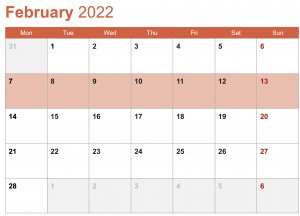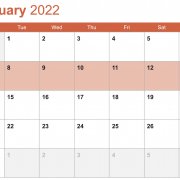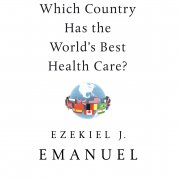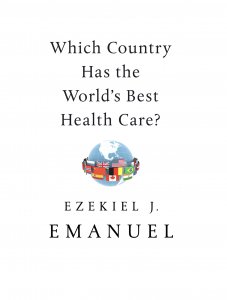7 days in healthcare (February 7-13, 2022)

SUMMARY
From the point of view of biomedicine, to highlight the advances that allow paraplegics to walk, through spinal implants.
Regarding Global Health, it is worth mentioning the WHO warning that the pandemic has threatened the health systems of 90% of the countries; as well as the health problems in Burkina Faso and Afghanistan.
In relation to international health policy, the WHO statement that the pandemic is not over and that more variants are expected should be highlighted. In some countries the restrictions are lifted (United Kingdom, Norway) while in others (Germany) they continue. HERA (the new European Authority for Preparedness and Response to Health Emergencies) begins its steps and will receive a budget of 1,300 million euros in 2022.
In national health policy, we are witnessing a relaxation of the restriction measures, as a consequence of the decrease in the figures of the pandemic (less than 1,500 per 100,000 inhabitants), although these figures are still high and are accompanied by high mortality. Nor is the appearance of new variants ruled out. On the other hand, in the face of loud announcements by the Government, the incorporation of Paxlovid, Pfizer’s medication against serious cases of COVID, is delayed. Work begins for the creation of the State Public Health Surveillance Network, one of the conclusions of the work of the Commission for Social and Economic Reconstruction of the Congress of Deputies of July 3, 2020 (point 19.2), although in the conclusions of the commission there was talk of “urgently implementing” this issue. It is addressed two years after the first death from covid. Also noteworthy is the great concern and mobilizations carried out by the nursing sector. The General Council of Nursing Colleges publishes a Decalogue, whose first point is “Spain without nurses” and the last “Enough of ignoring us”. Spain leads the consumption of anxiolytics, which does not seem like a minor problem.
As far as company news is concerned, mention should be made of the FDA’s delay in approving Pfizer’s vaccine for children under 5 years of age. Also the entry of Nestlé in the field of health, positioning itself in weight control.
BIOMEDICINE
- Spinal implants allow paraplegics to walk, swim and ride a bike. Breakthrough driven by Grégoire Courtine, a neuroscientist at the Federal Institute of Technology in Lausanne, and Jocelyne Bloch, a neurosurgeon at Lausanne University Hospital. The rupture of the cord prevents the transmission of electrical signals from the brain, which allows the implanted device (The Economist, 12 February 22)
- There is a lack of evidence that current covid vaccines will produce herd immunity (American Journal of Medicine, February 6, 22)
- A study analyzes the prevalence of loneliness in 113 countries, as a major health and social problem (BMJ, February 9, 22
GLOBAL HEALTH
- The WHO warns that more than 90% of the countries have seen their health system threatened by the pandemic (interruptions in services, difficulties in accessing care, problems with emergency care) (La Razón, February 7, 22)
- The WHO denounces actions by the pharmaceutical industry that make it difficult to bring covid vaccines to Africa. The declaration affects a foundation (kENUP) linked to BioNTech (BMJ, February 9, 22)
- The armed conflict in the Sahel region (Burkina Faso) endangers the already weak health system (The Lancet, February 12, 22)
- Afghanistan’s health system is collapsing under stress (NYT, February 6, 22)
- Ukraine, fears that a health system that had made great progress in recent times is going into crisis due to the possible conflict (The Lancet 12 February 22)
INTERNATIONAL HEALTH POLICY
- COVID
o The WHO warns that the pandemic is not over and that more variants are expected (ABC, February 12, 22)
o Covid levels remain high in many parts of Europe, but restrictions tend to be lifted (FT, February 11, 22)
o The 1918 flu had devastating effects the third year (Washington Post, February 6, 22)
o Protests against covid restrictions in France and the Netherlands (The Guardian, February 12, 22)
o Waiting lists in England exceed 6 million for the first time (FT, 10 February 22)
o Boris Johnson plans to end the restrictions due to covid a month earlier than planned (The Guardian, February 9, 22)
o China, ready to impose greater confinements in Hong Kong (FT, February 11, 22)
o A study detects that NYC deer are infected by covid (NYT, February 7, 22)
o Seven out of ten vaccines administered in the EU are from Pfizer (El Español, February 11, 22)
o Norway lifts all restrictions against the pandemic (El País, February 13, 22)
o Germany will not lift the restrictions against covid (El Mundo, February 10, 22)
- Other issues
o HERA (the new European Authority for Preparedness and Response to Health Emergencies) will have a total budget of 1,300 million in 2022 (diariofarma, February 10, 22)
o The EFPIA publishes a white paper on the effectiveness of public procurement of medicines in the EU (EFPIA, February 22)
o It seems that the attempts of the United States government to lower the price of medicines by allowing the negotiation of their prices in Medicare are failing (NEJM, February 9, 22)
NATIONAL HEALTH POLICY (SPAIN)
- COVID
o The low incidence of 1,500 cases per 100,000 inhabitants in Spain, although with 389 deaths on the last day with official information (La Vanguardia, February 11, 22)
o Delays in the incorporation of Paxlovid, Pfizer’s medication against severe COVID (El Periódico de España, February 11, 22)
- Political announcements
o Spain begins to create the pandemic alert network, creating the State Public Health Surveillance Network (El Español, 13 February 22)
- Other issues
o The nursing sector stars in demonstrations throughout Spain (La Razón, February 9, 22)
o Decalogue published by the General Council of Nursing Colleges (CGCE, February, 2022)
o Spain leads the consumption of anxiolytics in Europe, according to the latest report from the Narcotics Control Board (INCB), more than 2.5 million people consume psychotropic drugs daily (La Razón, February 12, 22)
o Spain doubles the number of leprosy cases in 2021 (The Objective, February 7, 22)
o The OMC (Collegiate Medical Organization), against Montero’s campaign on “obstetric violence” (El Español, February 10, 22)
o The Ombudsman intervenes in response to complaints of health cuts to MUFACE officials (La Razón, February 10, 22)
o In a meeting convened by the IMAS Foundation, specialists demand a digital health strategy (Health Act, February 9, 22)
o Cantabria wants to turn Valdecilla into a reference in precision medicine (Sanitary Act, February 10, 22)
COMPANIES, EMPLOYERS AND OTHER AGENTS IN THE SECTOR
- Important medical bet by Amazon that is revolutionizing the health system in the USA (El Economista, February 12, 22)
- The FDA puts a brake on the approval of Pfizer’s covid vaccine below 5 years (The Guardian, February 11, 22)
- Novavax, the fifth vaccine, arrives in Europe the last week of February (diariofarma, February 10, 22)
- China conditionally approves Pfizer’s treatment Paxlovid (The Guardian, 12 February 22)
- CEOE: Adriana Bonezzi, new head of the health area (Medical Writing, February 7, 22)
- Wivi vision. company that evaluates the capabilities of the visual system: agreement with General Óptica to implement it in its network of stores (PlantaDoce, February 8, 22)
- Vithas joins forces with Genesis Care to launch a cancer center in Madrid (PlantaDoce, February 4, 22)
- Pfizer more than doubles its profits in 2021, up to 22,000 million dollars (PlantaDoce, February 8, 22)
- Nestlé Health Science buys Pronokal, positioning itself in the weight loss and control products sector (Diario Médico, February 7, 22)
- J&J suspends the manufacture of its vaccine (Consalud, February 11, 22)
- Dependency insurance grows 96% and closes 2021 with 128,000 insured (PlantaDoce, February 7, 22)
- Durcal relies on Movistar to break into the elderly care segment (PlantaDoce, February 10, 22)
- Nordic Cap and Amulet enter the bid for the IVI group, Morgan Stanley will receive the non-binding offers before February 23 (CincoDías, February 12, 22)



